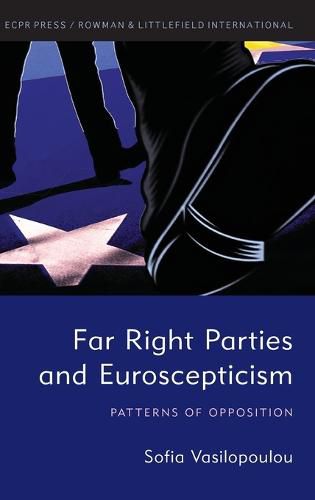Readings Newsletter
Become a Readings Member to make your shopping experience even easier.
Sign in or sign up for free!
You’re not far away from qualifying for FREE standard shipping within Australia
You’ve qualified for FREE standard shipping within Australia
The cart is loading…






Why do parties that belong to the same party family address the EU question differently? This book addresses this question through a systematic analysis of the EU positions of far right parties in Europe. Starting from the assumption that parties are rational vote-maximising actors, the book argues that the way in which they interpret structural incentives depends to a large extent on the party’s relationship with democracy, its attitude towards the polity, its target electorate/social basis, and its behaviour towards competitors. Classification on these indicators leads to the identification of three far right party models: ‘anti-system’; ‘anti-liberal’ and ‘normalised’. Given that the EU is a core and highly salient issue in far right parties’ toolkit, it becomes a key policy in party competition. Anti-system parties tend to opt for a rejectionist position on the EU; anti-liberal parties tend to be conditional Eurosceptics; and normalised parties tend to adopt a compromising position on the EU. The specific narrative that a party may employ in order to frame Europe domestically depends on the way in which it perceives national identity.
$9.00 standard shipping within Australia
FREE standard shipping within Australia for orders over $100.00
Express & International shipping calculated at checkout
Why do parties that belong to the same party family address the EU question differently? This book addresses this question through a systematic analysis of the EU positions of far right parties in Europe. Starting from the assumption that parties are rational vote-maximising actors, the book argues that the way in which they interpret structural incentives depends to a large extent on the party’s relationship with democracy, its attitude towards the polity, its target electorate/social basis, and its behaviour towards competitors. Classification on these indicators leads to the identification of three far right party models: ‘anti-system’; ‘anti-liberal’ and ‘normalised’. Given that the EU is a core and highly salient issue in far right parties’ toolkit, it becomes a key policy in party competition. Anti-system parties tend to opt for a rejectionist position on the EU; anti-liberal parties tend to be conditional Eurosceptics; and normalised parties tend to adopt a compromising position on the EU. The specific narrative that a party may employ in order to frame Europe domestically depends on the way in which it perceives national identity.